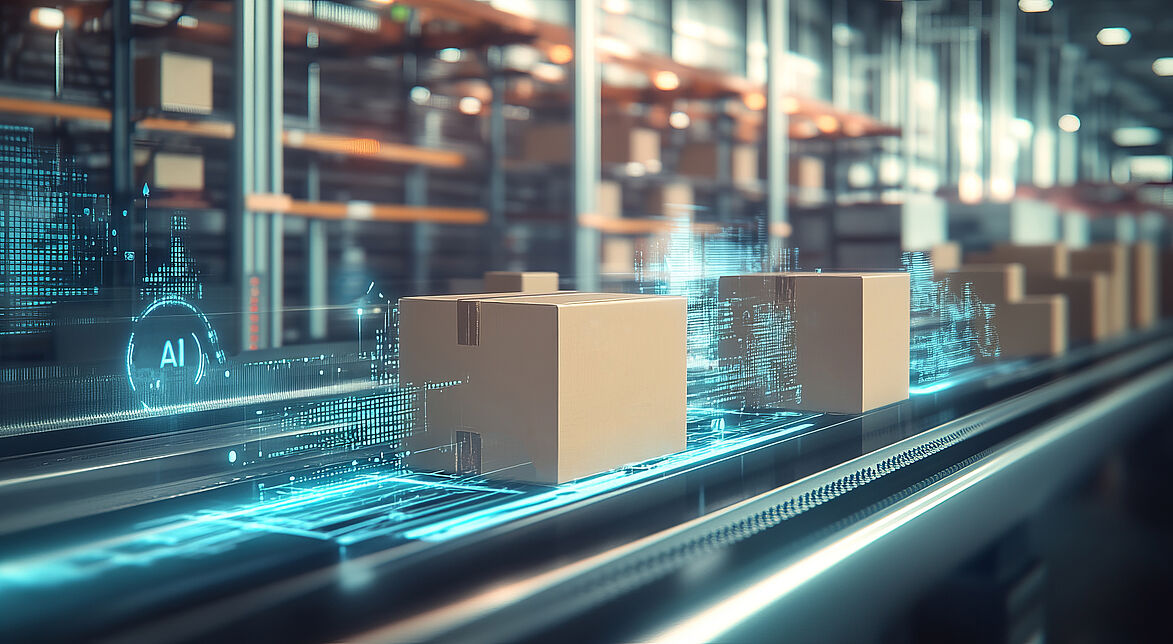Artificial intelligence is one of the most discussed topics in logistics today. A growing number of AI solutions are entering the market, offering significant potential to optimize intralogistics processes - whether in goods receipt, inventory planning, or returns management.
However, the question remains: To what extent has this new technology already been adopted in warehouse operations? What are logistics companies’ plans for investing in AI, and in which areas do they intend to make these investments?
To answer these questions, PSI conducted a survey among decision-makers in the logistics industry. The findings provide a clearer picture of the sector’s level of advanced planning. While some companies have already begun implementing AI in their warehouses and are seeing initial successes, many are still in the early stages. Nevertheless, a significant number of companies are eager to invest, despite the various challenges to innovation.
About the sample and methodology:
A quantitative survey was conducted among 300 logistics specialists and managers from Germany and Poland—two of Europe’s most important logistics markets. 150 decision-makers were surveyed in each country. Participants came from a wide range of industries, including logistics service providers, the automotive and building materials industries, retail and wholesale, the metal industry, and mechanical engineering.
The survey encompassed companies of all sizes, from micro-enterprises with 1–10 employees to larger medium-sized companies and corporations with over 500 employees.
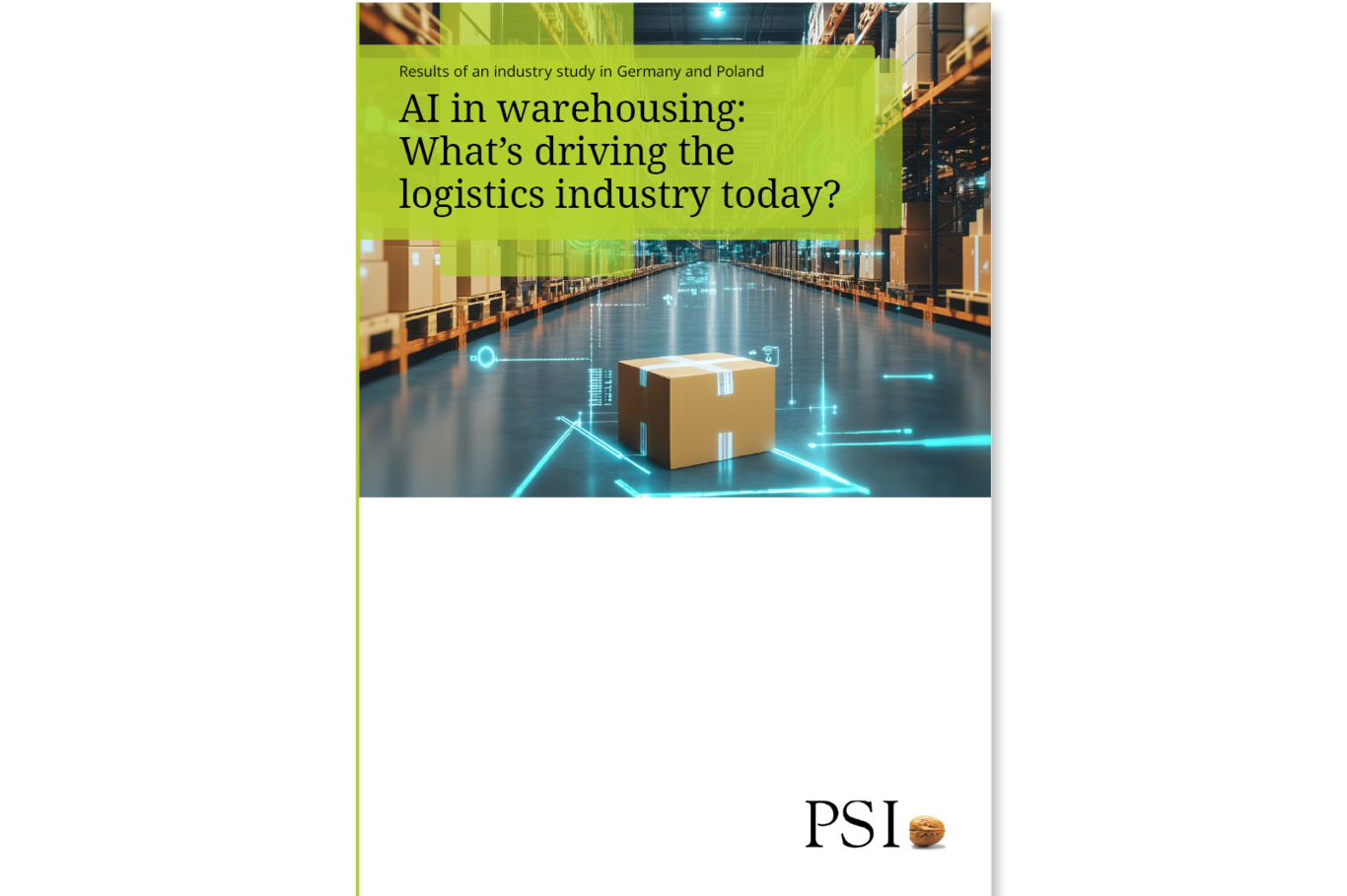
Report on the study AI in logistics
Explore the report to learn how artificial intelligence is being applied in warehouse logistics and the key areas where this emerging technology is making an impact. The study also reveals when intralogistics decision-makers plan to invest in AI and the challenges companies face during implementation.
Stronger willingness to invest in Poland
The study shows that AI has already been implemented in the warehouses of 15 percent of companies, and an additional 41 percent plan to invest in the technology within the next three years. However, there are significant differences between Germany and Poland. While only 29 percent of German companies surveyed plan to expand their AI capabilities, the figure in Poland is 53 percent. Considering that 17 percent of German companies and around 13 percent of Polish companies already use AI in their warehouses, the projected adoption rates by 2028 are 46 percent in Germany and 65 percent in Poland. This suggests that Poland is more open to technology, whereas German companies tend to be more cautious.
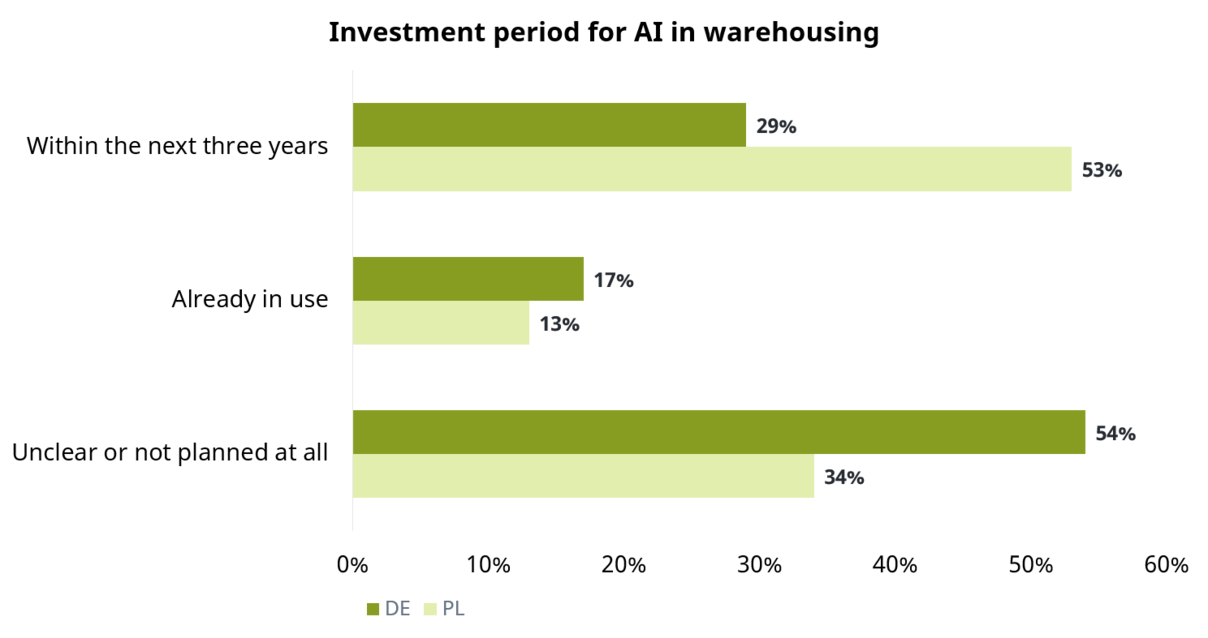
Potential areas of use
When asked about potential areas of application, a clear picture emerges. Nearly half of respondents (44 percent) see warehouse optimization as a promising use of AI, placing it far ahead of other areas. About one-third highlight inventory management, while around a quarter of decision-makers believe AI can significantly improve warehousing, goods receipt, and returns management.
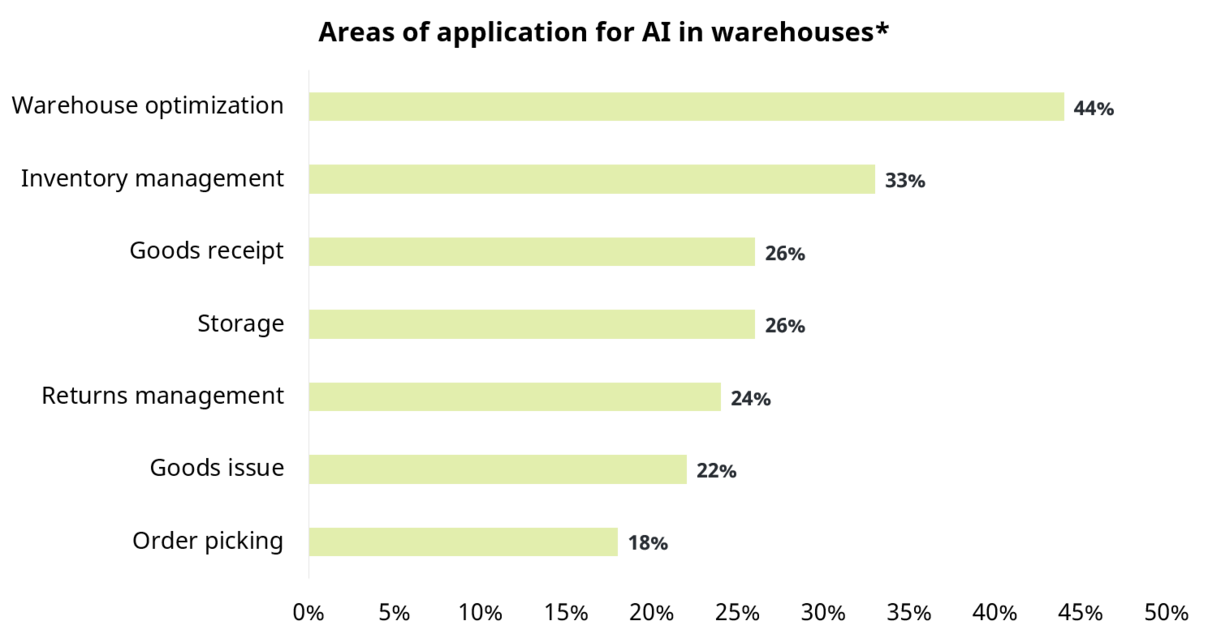
Costs, technology and other obstacles
Although artificial intelligence offers significant potential across many areas, several challenges could hinder its implementation. Around 40 percent of respondents cite costs, technical difficulties, and employee acceptance as key concerns. Notably, there are differences between Germany and Poland: German specialists and managers consider technical integration the greatest challenge, whereas Polish respondents are most concerned about implementation costs.
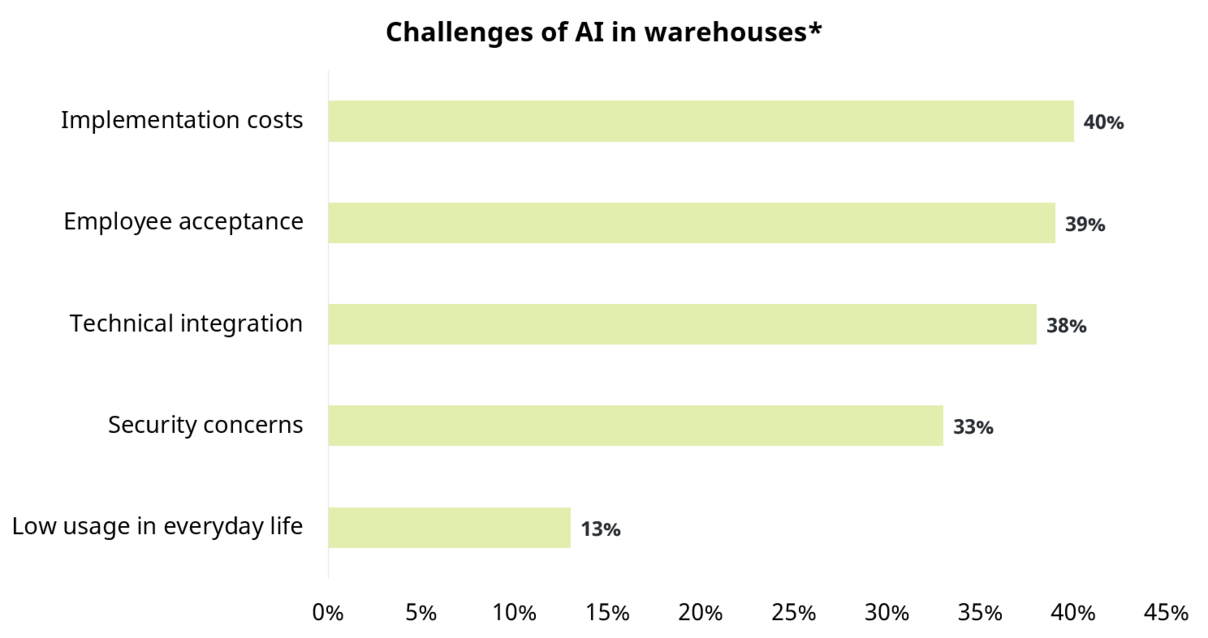
AI saves time and money
Despite these challenges, the majority of respondents either already use artificial intelligence in their warehouses or plan to implement it within the next three years. The primary motivation for integrating AI is time and cost savings, with more than half of decision-makers expecting to benefit in these areas. Additionally, 39 percent anticipate process optimizations, while only 5 percent see no advantages in using AI.
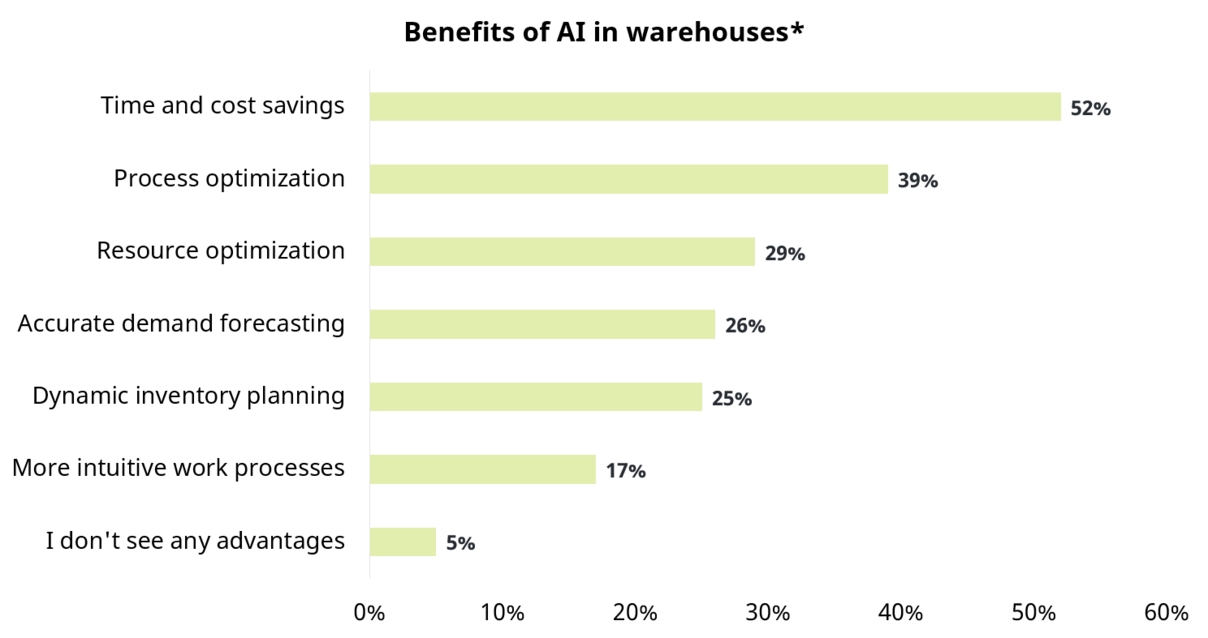
Conclusion: AI on the rise
The survey highlights the significant potential of artificial intelligence to transform warehouse logistics. If the results hold true, we may see this transformation soon. According to the study, two-thirds of Polish companies and half of German companies plan to use AI in intralogistics within the next three years.
Despite technical, financial, and cultural hurdles, optimism prevails. These positive expectations reflect a broad openness to new technologies, marking a decisive step toward sustainable logistics.

Use case AI in logistics
Discover more about artificial intelligence, a leading trend in the WMS market. PSI already offers an AI platform that delivers measurable results for customers. For example, the fashion company LPP was able to significantly optimize its intralogistics processes using PSIwms AI. You can find more information in the use case “Advantages of artificial intelligence in intralogistics”.
